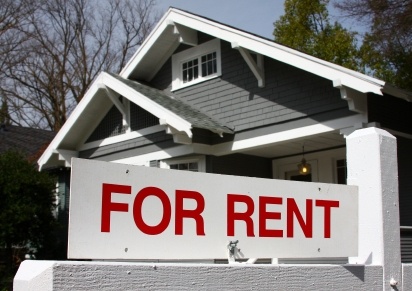 Updated By Richard Barrington
Updated By Richard Barrington
Raising money for a down payment can be one of the most difficult parts of buying a home. If you are struggling to scrape together a down payment but have accumulated a decent balance in your 401(k) plan, it might be natural for you to wonder if you could use some of that 401(k) money toward your down payment.
In many cases you can use 401(k) money to fund a down payment. The real question is whether or not you should. There are pros and cons to dipping into a 401(k) to buy a house, and its important to understand both before making this decision.
Dipping into 401(k) to buy a house: how it works
Theoretically, there are two ways you can dip into your 401(k) to buy a house, though in practice one of them is too expensive to be a good idea.
If you simply take money out of your 401(k) plan you are subject to a 10 percent IRS penalty, plus any ordinary income tax due on the distribution. Those tax consequences would immediately reduce the amount of 401(k) money you have available for a down payment, and represent a very expensive hit to your retirement savings.
A better way to use 401(k) money for a down payment is to borrow against your balance. While borrowing against a 401(k) balance is legal, it is up to the specific plan sponsor whether or not to allow it. So, if you think you might be interested in pursuing this approach, a first step is to check with your employer to see if their 401(k) plan allows loans.
Typically, 401(k) loans can be made in amounts that represent the larger of $10,000 or 50 percent of your plan balance, with a maximum loan size of $50,000. This $50,000 limit includes any existing balances you have outstanding on previous loans from the plan.
Most 401(k) loans must be repaid within five years, though longer repayment periods are legally permissible for loans used toward the purchase of a primary residence. However, as with whether to permit loans in the first place, guidelines on whether to permit longer repayment terms for home loans depend entirely on how your plan is set up.
Whatever the repayment period is, loans are expected to be repaid in equal increments over the life of the loan, with payments due at least quarterly.
Using 401(k) for down payment: potential benefits
Suppose you check with your employer and get good news - your 401(k) plan does permit you to borrow against your balance. Why should you consider doing this? Here are some potential benefits:
- This might get you into the housing market sooner than if you had to save up for a down payment. This could save you money when real estate prices are rising rapidly.
- While FHA mortgages and some other programs offer low-down payment programs, coming up with a larger down payment could help you qualify for a lower mortgage rate.
- Whatever your mortgage rate, a larger down payment will reduce the balance on which you have to pay mortgage interest.
- A larger down payment could save you from having to pay mortgage insurance, or at least qualify you for lower mortgage insurance premiums.
If these potential benefits make dipping into a 401(k) for a down payment sound like a terrific deal, be sure to read the next section before you make up your mind.
Dipping into 401(k) for down payment: potential costs
If the idea of "borrowing from yourself" sounds like a cost-free way of raising a down payment, think again. There are potential costs and risks:
- If you fail to repay the loan on time, any delinquent payments could be considered unqualified distributions and be subject to tax consequences.
- If you leave the plan, you will have to pay the loan back almost immediately. This could create a serious cash flow crunch at the worst possible time -- when you have just lost your job or are changing employers.
- You miss out on investment earnings. Until you have repaid the loan in full, part of your 401(k) balance is not invested for growth. Investment growth is generally an important part of building a retirement nest egg.
- Your loan repayments to the 401(k) may cut into the money you have available for future contributions to that plan, especially since those loan repayments do not have the tax-advantaged characteristics that 401(k) contributions have. This reduces the amount you save and invest, and may limit your ability to benefit from employer matching dollars.
There is no one-size-fits-all advice about whether dipping into a 401(k) for a down payment is a good idea or not, because so many factors impact on this decision. Think about how urgently you need to buy a house, how stable your job is, how close you are to retirement and how well-funded your retirement savings are.
Weigh the pros and cons in the context of these factors, and you should be in position to make an informed decision.



